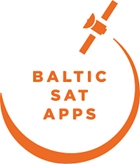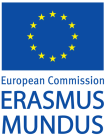Education and training
 BalticSatApps
BalticSatApps
Project duration: October 2017 – December 2020
Acronym: BSA
Funded by: Interreg Baltic Sea Region Programme 2014–2020,
and European Neighbourhood Instrument/financial support of the Russian Federation
Project leader:
Brahea Centre, University of Turku, Finland - Mr. Tuomas Ranti, (+358/0) 41 50 47 85 5, tuomas.ranti@utu.fi
Partners:
Institute of Geodesy and Cartography, Cracow University of Technology – Technology Transfer Centre, Krakow Technology Park, St. Petersburg State Unitary Enterprise – St. Petersburg Information and Analytical Centre, Tartu Observatory of the University of Tartu, Tartu Science Park Foundation, Swedish National Space Agency, Finnish Meteorological Institute
Project goal:
The BalticSatApps project’s aim has been to advance the development of new solutions and commercial activity that utilize Copernicus Earth Observation data. The project strived to speed up the market uptake of EO satellite data in the Baltic Sea Region by utilizing societal challenges and needs along with the developer community as innovation drivers. The project increased awareness about the data provided by the Copernicus Programme, improved access to the data, and stimulated demand and innovation through co-creation and iterative development methodologies. Regional science and technology parks also provided with training on how to support SMEs in the emerging EO market by running specialized acceleration programmes.
Task description:
Institute of Geodesy and Cartography was responsible for developing the Data2Information Kit. Its aim is to familiarize potential users with the operational nature of satellite issues. The document presents the Copernicus satellites, data and application areas. This knowledge is deepened with examples how to deploy the data and with success stories to demonstrate Copernicus implementation. The step-by-step guide introduces interested parties to the world seen from above and allows you to assimilate even the most complex concepts. Moreover, IGiK employees acted as trainers at the workshops. They also served as expert advice on numerous hackathons.
 ERASMUS MUNDUS - Geo-information Science and Earth Observation for Environmental Modelling and Management” (GEM) EU Programme
ERASMUS MUNDUS - Geo-information Science and Earth Observation for Environmental Modelling and Management” (GEM) EU Programme
In this course you will learn about environmental systems, their components and interactions with society, as well as become qualified in the rapidly expanding field of geo-information science. The alumni from GEM programme have all found relevant and exciting work opportunities in the application of spatial science and information within government, the private sector and NGOs. Our MSc course has been selected for a second 5 year cycle of European Union funding support, allowing us to continue to offer prestigious scholarships to outstanding candidates from the EU, as well as non-EU countries. In this programme take part universities in Iceland, Netherlands, Poland, Sweden and UK, as well as our partner university in Australia.
The partners of GEM program are University Twente Faculty ITC, University Lund ( GIS ), University of Island, University of Southampton-Geography, University of Warsaw ( Interfaculty Studies in Environmental Protection ).
GEM Programme Coordinator : prof. Andrew Skidmore ( University Twente )
Polish National Coordinator : prof. Katarzyna Dabrowska - Zielinska
Warsaw University Coordinator : dr Malgorzata Roge - Wisniewska
Institute of Geodesy and Cartography Coordinator : prof. Katarzyna Dabrowska - Zielinska
More inforation: www. gem-msc.org and mail to gem-msc@itc.nl
 Project duration: January 2011 – December 2014
Project duration: January 2011 – December 2014
Acronym: GIONET
Programme coordniator: prof. Heiko Balzter (University of Leicester)
Coordinators at IGiK: prof. Katarzyna Dabrowska-Zielinska, Dr. Eng. Zbigniew Bochenek, Dr. Eng. Agata Hoscilo
Institute of Geodesy and Cartography, as a member of European Centre of Excellence for Earth Observation Research Training, welcomed two GIONET Early Stage Researchers (ESRs) for three years of individually supervised doctoral projects.
Mr. Matthew Ofwono from Uganda worked on the project "Satellite derived information for drought detection and estimation of the water balance" (supervisor: prof. Katarzyna Dabrowska-Zielinska). Mr. Shailesh Shrestha from Nepal realized the project “Monitoring of land cover or land use changes using HR satellite images" (supervisor: Dr. Eng. Zbigniew Bochenek).
In October 2011, 14. GIONET ESRs participated in the 1st GIONET Summer School in Jena (Germany). The Summer School included a stepwise seminar on SAR remote sensing principles followed by lectures on interferometric and polarimetric processing and modelling (PolSARPro software and various in-house programs; and a two-day workshop module on Trimble's eCognition). A second part covered hyperspectral remote sensing and fieldwork, calibration and signal retrieval, radiative transfer, segmentation and advanced image processing techniques. The 2nd GIONET Summer School was organized by the University of Leicester (UK) in September 2012.
